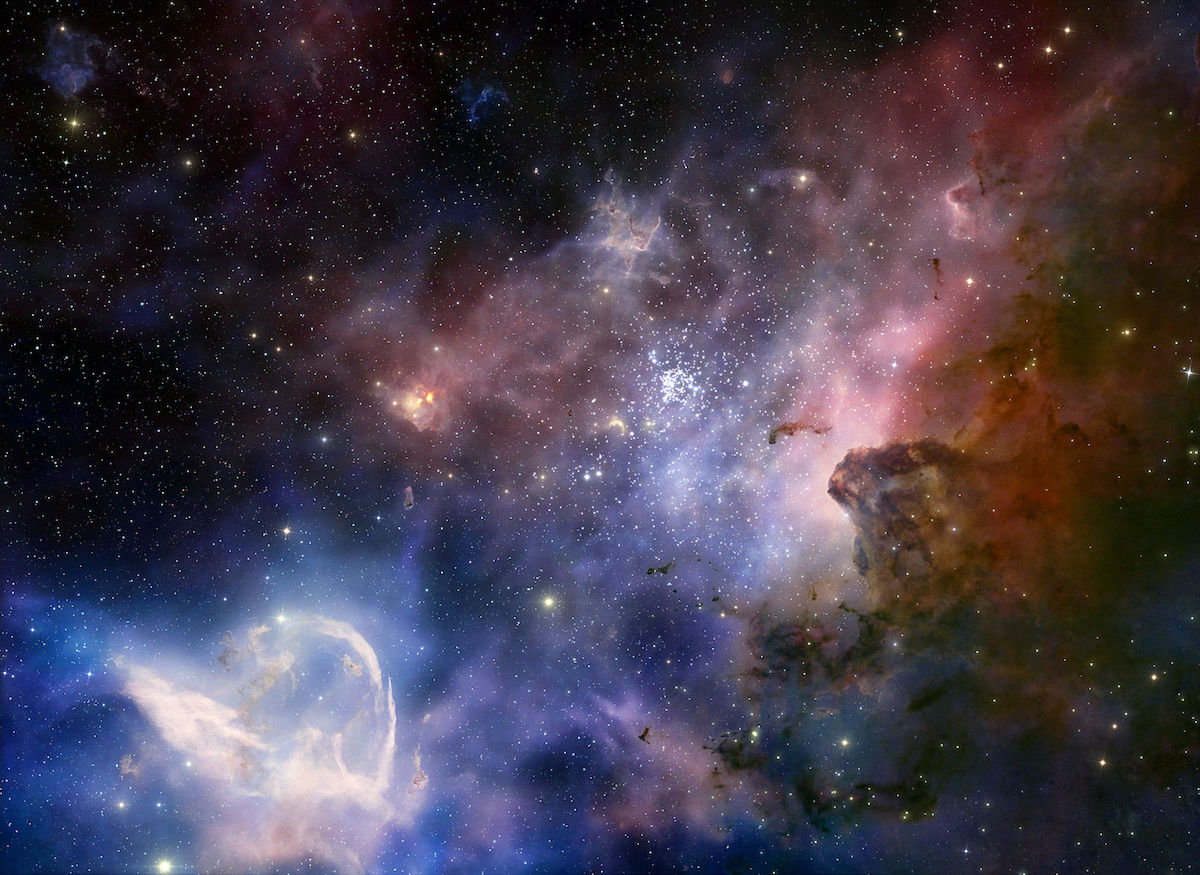About 100 billion years from now, all but the closest of galaxies will be dragged away by the swelling space at faster-than-light speed and so would be impossible for us to see, regardless of the power of telescopes used. If these ideas are right, then in the far future the universe will be a vast, empty, and lonely space.
This is Brian Green talking about the predictions of the inflationary theory on the future of the universe in The Fabric of the Cosmos (if you don’t know him, Brian Green is the charming guy who wrote the Elegant Universe
and starred in the PBS series by the same name).
As a science fiction freak, reading the Fabric of Cosmos is a depressing experience. I really had high hopes for the universe. I believed one day we would travel all over the cosmos, meet other intelligent life forms, and expand our horizons. But scientists are discovering that we are really just a small group of living things in a universe that is too big and expanding too fast for us to go anywhere. And if you just wait 100 billion years more, we won’t even have a universe around us to enjoy.
The democratic dream of space travel for all, even in clunky starships a la StarWars is just not materializing. After we went to the moon a few times, manned space exploration went pretty much downhill. Sure, we have satellites junking up space, a international space station that is too hard to service, and we sent a bunch of probes to Mars. But space travel for humans is still too expensive and too dangerous.
Think about the Space Shuttle. Two years after the Columbia accident, the Discovery had first problems with the fuel sensors that delayed lift-off, then a piece of insulating foam hit the ship. Eileen Collins, US first female spacecraft commander, declared: “We were actually quite surprised to hear that we had some large pieces of debris fall off the external tank, it wasn’t what we had expected. Frankly, we were disappointed to hear that had happened.” So far, 4% of the people sent into space have been killed in accidents; NASA’s estimated rate of catastrophic failure for the Space Shuttle is two flights in 113, or 1 in 57.
We have not discovered how to speed faster than light into hyperspace or how to use the improbability drive. Sorry, folks, I think we are stuck on Earth. Let’s take good care of it.
Technorati tags: Brian Green, cosmology, universe, Space Shuttle
